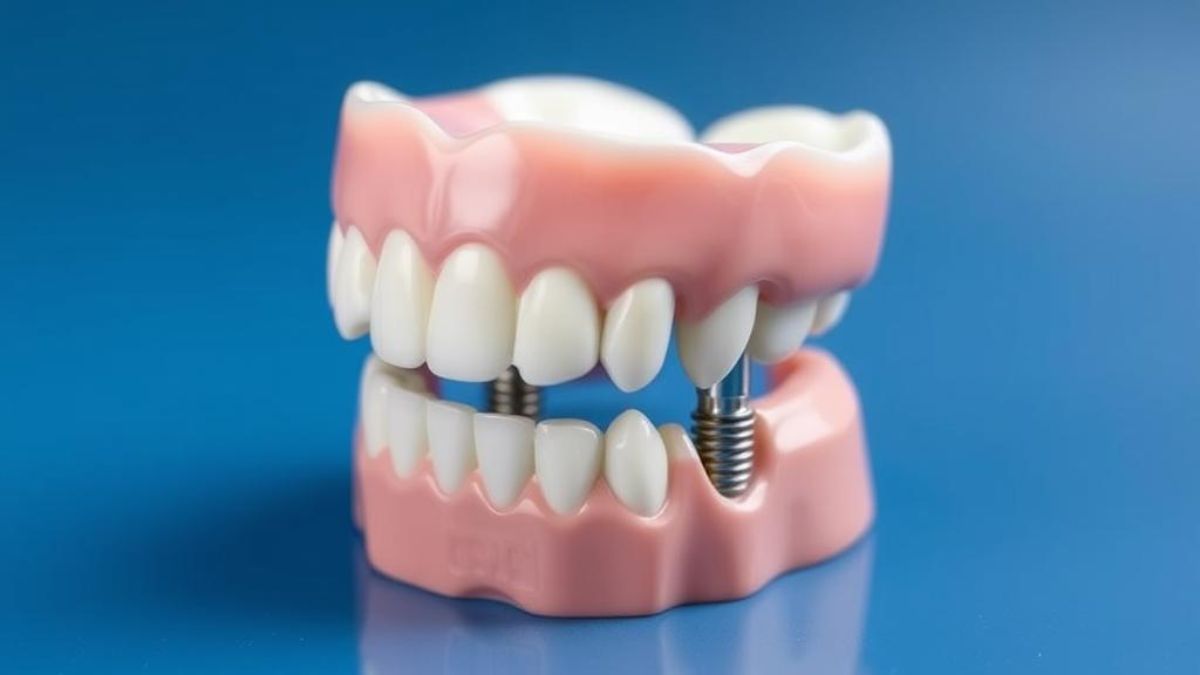Dental health plays a vital role in our overall well-being. Missing teeth can significantly impact both your physical health and self-esteem. When it comes to restoring your smile, dental implants often emerge as the best solution. But how do you know if dental implants are right for you? In this article, we’ll explore 8 signs that you need dental implants. Understanding these signs can help you make informed decisions about your dental health.
1. Missing Teeth
One of the most obvious signs that you might need dental implants is having one or more missing teeth. According to the American Academy of Implant Dentistry, more than 120 million Americans are missing at least one tooth. When a tooth is lost, it can affect your ability to chew, speak, and smile confidently. Dental implants can restore the functionality and appearance of your teeth, making them an excellent choice for anyone facing tooth loss.
2. Difficulty Chewing or Speaking
If you find it challenging to chew your food or speak clearly, you may need dental implants. Missing teeth can lead to discomfort and difficulty in biting down on food, which can affect your nutrition. Moreover, speech issues can arise when teeth are missing. For example, certain sounds rely on the presence of teeth. If you’re struggling to pronounce words correctly, dental implants can help restore your oral function.
3. Gum Disease
Gum disease can lead to tooth loss if left untreated. According to the Centers for Disease Control and Prevention (CDC), nearly half of adults aged 30 and older show signs of gum disease. If you experience gum disease, you may also notice loosening teeth or receding gums. In such cases, dental implants can replace missing teeth and improve your oral health. They can also provide a stable foundation for artificial teeth, helping to prevent further gum issues.
4. Bone Loss in the Jaw
When a tooth is missing, the underlying jawbone can begin to deteriorate. This process, known as bone resorption, occurs because the bone needs stimulation from the tooth roots to maintain its density. A study published in the Journal of Periodontology found that up to 25% of bone mass can be lost within the first year after a tooth extraction. If you notice a sunken appearance in your face or have been informed about bone loss by your dentist, dental implants can help stimulate bone growth and restore facial structure.
5. Shifting Teeth
Missing teeth can lead to shifting in your remaining teeth. This shifting can create gaps and misalignments, resulting in bite issues. When teeth shift, they can also affect your overall oral health, making you more susceptible to cavities and gum disease. If you notice changes in the alignment of your teeth, it may be time to consider dental implants. They can fill the gaps and help maintain proper alignment.
6. Persistent Tooth Pain
If you experience ongoing tooth pain, it could indicate that you need dental implants. While the pain may originate from an existing dental issue, such as a fractured tooth or severe decay, it may lead to tooth loss if not addressed. Pain can also stem from an infection in the tooth roots. Seeking dental care can help diagnose the issue, and if the tooth is beyond saving, dental implants may be a suitable option.
7. Unstable Dentures or Bridges
If you currently wear dentures or have dental bridges that feel unstable or uncomfortable, dental implants might be the solution. Traditional dentures can slip, causing discomfort while eating or speaking. Implants provide a secure fit, eliminating the worry of movement. According to a survey by the American Academy of Implant Dentistry, 98% of implant patients reported satisfaction with their implants. If you’re struggling with dentures, implants can offer a more reliable and comfortable alternative.
8. A Desire for a Permanent Solution
If you’re tired of temporary fixes and desire a permanent solution for tooth loss, dental implants are a fantastic option. Unlike bridges or dentures, which may require frequent adjustments, implants are designed to last for many years, often a lifetime with proper care. If you’re seeking a long-lasting and effective solution, dental implants can help restore your smile and confidence.
Conclusion
Understanding 8 signs that you need dental implants can empower you to take control of your dental health. From missing teeth to persistent pain, each sign indicates a need for professional evaluation. Dental implants not only restore functionality but also improve your overall quality of life. If you identify with any of these signs, consult your dentist to explore the best options for your situation.
FAQs
1. How long do dental implants last?
With proper care, dental implants can last a lifetime, making them a durable solution for tooth loss.
2. Are dental implants painful?
Most patients report minimal discomfort during the procedure, and pain can usually be managed with medication afterward.
3. How much do dental implants cost?
The cost of dental implants varies widely depending on location and individual needs but typically ranges from $3,000 to $4,500 per implant.
4. Can anyone get dental implants?
While most people are candidates, certain health conditions may affect eligibility. Consult your dentist for personalized advice.
5. What is the recovery time for dental implants?
Recovery can take several months, but many patients return to normal activities within a few days. Full healing typically takes 3 to 6 months.





